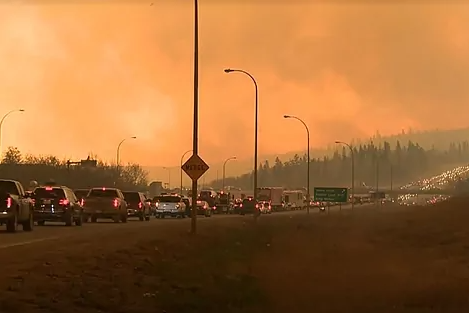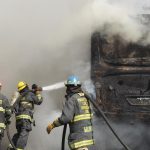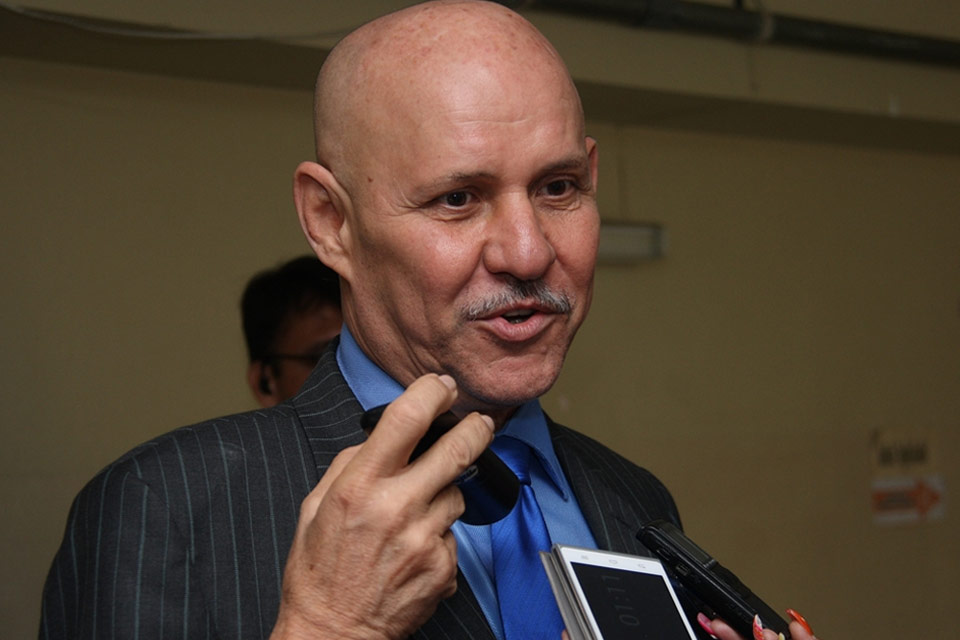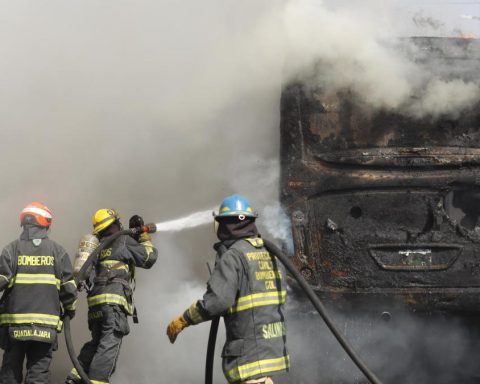Some 25,000 Canadians were forced to flee their homes by 103 wildfires that broke out in the western province of Alberta. The local government declared a state of emergency this Saturday.
Thousands more were warned to be prepared to leave their homes at any moment.
“We have declared a state of emergency” in the province to guarantee “the safety, health and well-being of Albertans,” Alberta Prime Minister Danielle Smith told a news conference after a meeting of her government’s emergency management committee.
This Canadian province, one of the largest oil-producing regions, “has been experiencing a hot, dry spring, and with so much firewood, a few sparks are enough to ignite a few really scary wildfires“He had pointed out earlier.
“These conditions have resulted in the unprecedented situation our province is facing today.”
Smith said some 122,000 hectares had burned so far.
The declaration of a state of emergency gives the Alberta government “greater powers to respond to extreme situations,” he said, including mobilizing additional resources and unlocking emergency funds.
Almost all of Alberta and much of the neighboring province of Saskatchewan, as well as a wide swath of the Northwest Territories, are facing extreme fire hazards according to a federal government fire danger map.
Federal Emergency Preparedness Minister Bill Blair tweeted that Ottawa was ready to provide federal assistance if needed.
Oil sands facilities were closely monitoring the hazards, but none have reported interruptions in their production.
Drayton Valley, population 7,000 and about 140 kilometers west of Edmonton, was among the communities evacuated while Firefighters fighting an out of control fire.
About 550 kilometers north of the provincial capital, a serious fire consumed 20 homes, a general store and a police station in the Fox Lake community. Residents were evacuated by boat and helicopter.
Residents of the town of Edson, with a population of more than 8,000, were also ordered to “evacuate immediately.”
In recent years, Western Canada has been repeatedly hit by extreme weather events, the intensity and frequency of which have increased due to global warming.

















